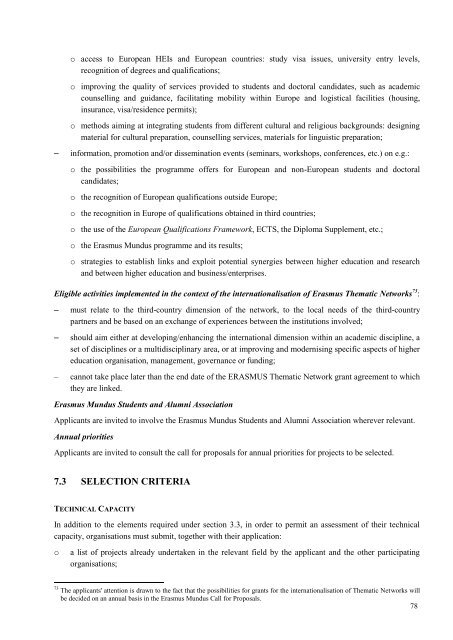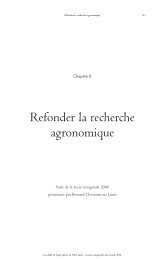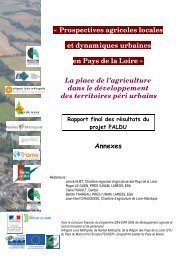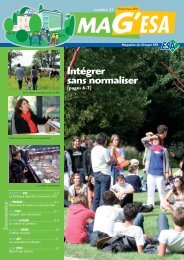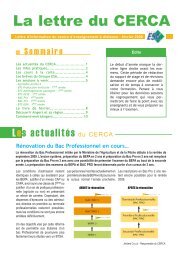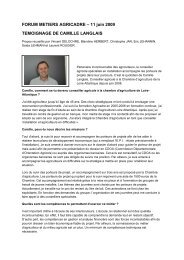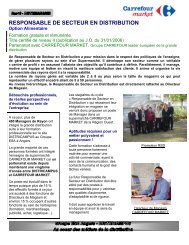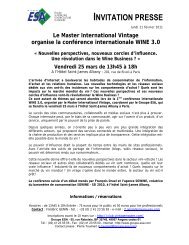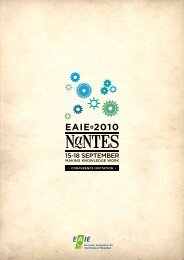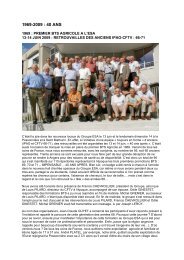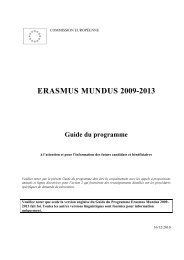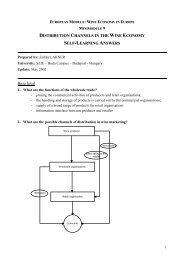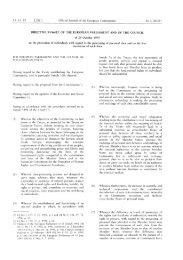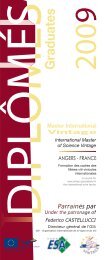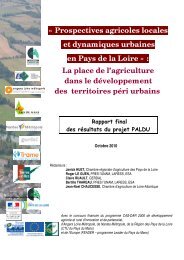ERASMUS Mundus Program Guide - EACEA - Europa
ERASMUS Mundus Program Guide - EACEA - Europa
ERASMUS Mundus Program Guide - EACEA - Europa
You also want an ePaper? Increase the reach of your titles
YUMPU automatically turns print PDFs into web optimized ePapers that Google loves.
o access to European HEIs and European countries: study visa issues, university entry levels,<br />
recognition of degrees and qualifications;<br />
o improving the quality of services provided to students and doctoral candidates, such as academic<br />
counselling and guidance, facilitating mobility within Europe and logistical facilities (housing,<br />
insurance, visa/residence permits);<br />
o methods aiming at integrating students from different cultural and religious backgrounds: designing<br />
material for cultural preparation, counselling services, materials for linguistic preparation;<br />
– information, promotion and/or dissemination events (seminars, workshops, conferences, etc.) on e.g.:<br />
o the possibilities the programme offers for European and non-European students and doctoral<br />
candidates;<br />
o the recognition of European qualifications outside Europe;<br />
o the recognition in Europe of qualifications obtained in third countries;<br />
o the use of the European Qualifications Framework, ECTS, the Diploma Supplement, etc.;<br />
o the Erasmus <strong>Mundus</strong> programme and its results;<br />
o strategies to establish links and exploit potential synergies between higher education and research<br />
and between higher education and business/enterprises.<br />
Eligible activities implemented in the context of the internationalisation of Erasmus Thematic Networks 73 :<br />
– must relate to the third-country dimension of the network, to the local needs of the third-country<br />
partners and be based on an exchange of experiences between the institutions involved;<br />
– should aim either at developing/enhancing the international dimension within an academic discipline, a<br />
set of disciplines or a multidisciplinary area, or at improving and modernising specific aspects of higher<br />
education organisation, management, governance or funding;<br />
– cannot take place later than the end date of the <strong>ERASMUS</strong> Thematic Network grant agreement to which<br />
they are linked.<br />
Erasmus <strong>Mundus</strong> Students and Alumni Association<br />
Applicants are invited to involve the Erasmus <strong>Mundus</strong> Students and Alumni Association wherever relevant.<br />
Annual priorities<br />
Applicants are invited to consult the call for proposals for annual priorities for projects to be selected.<br />
7.3 SELECTION CRITERIA<br />
TECHNICAL CAPACITY<br />
In addition to the elements required under section 3.3, in order to permit an assessment of their technical<br />
capacity, organisations must submit, together with their application:<br />
o<br />
a list of projects already undertaken in the relevant field by the applicant and the other participating<br />
organisations;<br />
73 The applicants' attention is drawn to the fact that the possibilities for grants for the internationalisation of Thematic Networks will<br />
be decided on an annual basis in the Erasmus <strong>Mundus</strong> Call for Proposals.<br />
78


